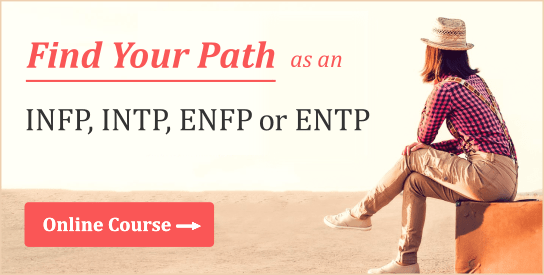
Recently, I was perusing Mihaly Csikszentmihalyi’s best-selling book, Flow: The Psychology of Optimal Experience, and came across a section on life themes. There he recounts the story of a now famous social scientist, who, in learning of the turmoil his parents experienced in Europe after World War I, decided to dedicate his life to “understanding why people made life miserable for one another.”
I’m certainly no stranger to the notion of life themes, nor to frequently revisiting my own. But what struck me as interesting is how this man dedicated his life to investigating a question. Historically, I’ve tended to think of life themes in terms of roles (e.g., investigator) or interest areas (e.g., personality psychology). And while these are certainly viable approaches, I wonder if framing one’s identity and purpose in terms of key questions isn’t a better approach.
Seeking answers to important questions can be deeply motivating and inspiring, especially for intuitive (N) personality types. I’ve noticed that nothing drives me more, as an INTP, than captivating questions. Einstein’s life and work was also question centered. He was passionate about finding answers to only two or three foundational questions about the universe.
Although some of the questions we wrestle with are unique to our own lives and minds, there are a handful of “big questions” we must all contend with at some point. In this post, we will explore three such questions, questions which can help you realize your identity, purpose and potential.
1. Who Am I? (Identity)
Prior to the advent of our ethos of individualism, a more prominent question would have been “Who are we?” Instead of seeking to understand themselves as individuals, people simply assimilated the identity of their family, culture, and religious upbringing. In short, concerns about personal identity weren’t even on the menu until after the Enlightenment.
Things are obviously quite different nowadays, with the majority of identity negotiation being left up to the individual. This has its pluses and minuses. On the one hand, we have more freedom and personal control over our lives than ever before. On the other hand, we can feel like a shopper trying to choose between 50 different varieties of spaghetti on the shelf, overwhelmed by the number of possible paths and identities before us.
That said, to the extent that who we are is hardwired (e.g., our temperament, IQ, etc.) it’s really a matter of self-discovery more than choice. While self-creation also plays a vital role in shaping our sense of self, we can’t ignore past and present evidence about who we are. There are several different ingredients that contribute to our self-understanding, things like:
- Personality type (take our test if you’re unsure of your type)
- Interests
- Abilities
- Values
- Relationships / culture
- Beliefs / worldview
The relative weight assigned to each of these will of course vary by individual. But in order to get a clearer sense of who we are, it’s helpful to explore these issues and then step back to get a sense of the overall picture they convey.
2. What Should I Do? (Purpose)
Knowing who we are is not enough. To enjoy a complete and balanced life, we must also act, produce and contribute. Action helps us feel more connected to the world at large, which imbues our lives with a greater sense of meaning and purpose.
That said, introverted (I) intuitive (N) types, can be particularly insistent toward answering the “Who am I?” question before moving on to “What should I do?” They feel their actions should reflect and flow out from who they are as individuals. For extraverts (E) and sensors (S), achieving full self-clarity often feels less imperative as long as they like what they’re doing.
We can explore the “What should I do?” question in a variety of ways. One approach involves identifying the role(s) you’d like to embody. You might consider archetypal roles (e.g., sage, creator, explorer, etc.) or opt to define your roles more specifically (e.g., writer, activist, etc.). Either way, it’s wise to think about roles prior to examining specific careers, since roles are more foundational, enduring, and portable. Even when your job or employer changes, you can still envision yourself playing the same role. For ideas about the roles you might assume, consider investigating the various roles associated with your personality type. We’ve written posts on the roles of the cognitive functions used by the types, as well as INFP and INFJ roles in particular. Our online course, Finding Your Path as an INFP, INTP, ENFP or ENTP, also includes module on life roles.
Another approach, which we touched on earlier, is identifying the types of questions you might like to explore, or the problems you’d like to resolve. Some of you, for instance, may still be coming to terms with the “Who am I” question. Others may be looking at the myriad problems of the world and trying to zero in on which one(s) you are best equipped to help solve. Regardless, orienting yourself to specific questions or problems is a reliable way to inspire purposeful action.
Selecting a trade, college major, or career path is also germane to the “What should I do?” question. I like the government website, O*Net, which allows you to explore an extensive archive of careers according to your interests, abilities, knowledge, skills, etc.
3. How Can I Fulfill My Purpose? (Realize Potential)
Individuals operating as seekers are largely consumed with our first two questions. They feel they don’t have enough self-knowledge or clarity of purpose to warrant committed action. For seekers who’ve managed to identify their purpose or path in life, a significant shift in mindset is required. Namely, they must find a way to transition from finding their purpose to effectively and consistently fulfilling it. This transition is rarely easy, especially for long-time seekers. Indeed, a central dilemma for seekers is whether they should keep seeking, which feels familiar but runs the risk of never accomplishing anything, or whether they should take what they know and trust that it’s enough to justify committed action.
Carrying out one’s purpose, as opposed to merely seeking it, can be a rather different world. Although self-knowledge can continue to be sought, settling on an identity or purpose is no longer the primary objective. Instead, emphasis may be shifted to concerns about motivation, meaning, perseverance, and mastery (e.g., “How can I continue to be both happy and effective on the path that I’ve chosen?”). As Csikszentmihalyi observed:
No goal can have much effect unless taken seriously… The mountaineer who decides to scale a difficult peak knows that he will be exhausted and endangered for most of the climb. But if he gives up too easily, his quest will be revealed to have little value.
Interestingly, the quest for mastery also hinges, to a significant extent, on self-knowledge. There is no one-size-fits-all solution to problems involving motivation or follow-through. Thus, without sufficient insight and self-awareness, we have little hope of reaching our true potential. For those with a seeker’s mentality, this is actually a good thing, as it encourages an ongoing dialogue between ourselves and our purpose. It also suggests that self-mastery is part and parcel of effectively fulfilling our purpose.
To further explore and realize your identity, purpose and potential, be sure to check out our online course, Finding Your Path as an INFP, INTP, ENFP or ENTP.
Related Posts:
5 Personality Traits of Passionate People

Bill says
A.J. this is a very thoughtful article! Thank you. I have been following you & Elaine for years. I think I have all of your books, too! I am an avid follower! I definitely identify with the seeker-mentality. I find fundamental questions as being particularly inspirational for me! I am unsure of which type I am but I always score very high in ideation. I am not sure which version of intuition that I manifest either. Mastery is difficult for me. I find it hard to commit to just one or two things. So, I tend to deviate a lot in my exploration but I also find that my deviations (at some point) connect back to the fundamental questions that I posed earlier. It’s like suddenly I am aware of how my pet-project connects to the bigger picture. The fundamental challenge in the one reveals the answer to the other. What do you find is your process in being a seeker? What question or questions drive you?
A.J. Drenth says
Hello Bill,
Thanks so much for your comment and readership. I particularly appreciated this point – “my deviations (at some point) connect back to the fundamental questions” – which relates to some of my previous observations about NP types. Namely, Extraverted Intuition (Ne) can be seen as representing broad exploration, while Introverted Sensing (Si) serves to recall past explorations. This retrospection allows us see points of overlap and, hopefully, to better grasp the fundamental questions driving our explorations. The challenge of course is digging deep enough and perceiving well enough to see what those essential questions really are.